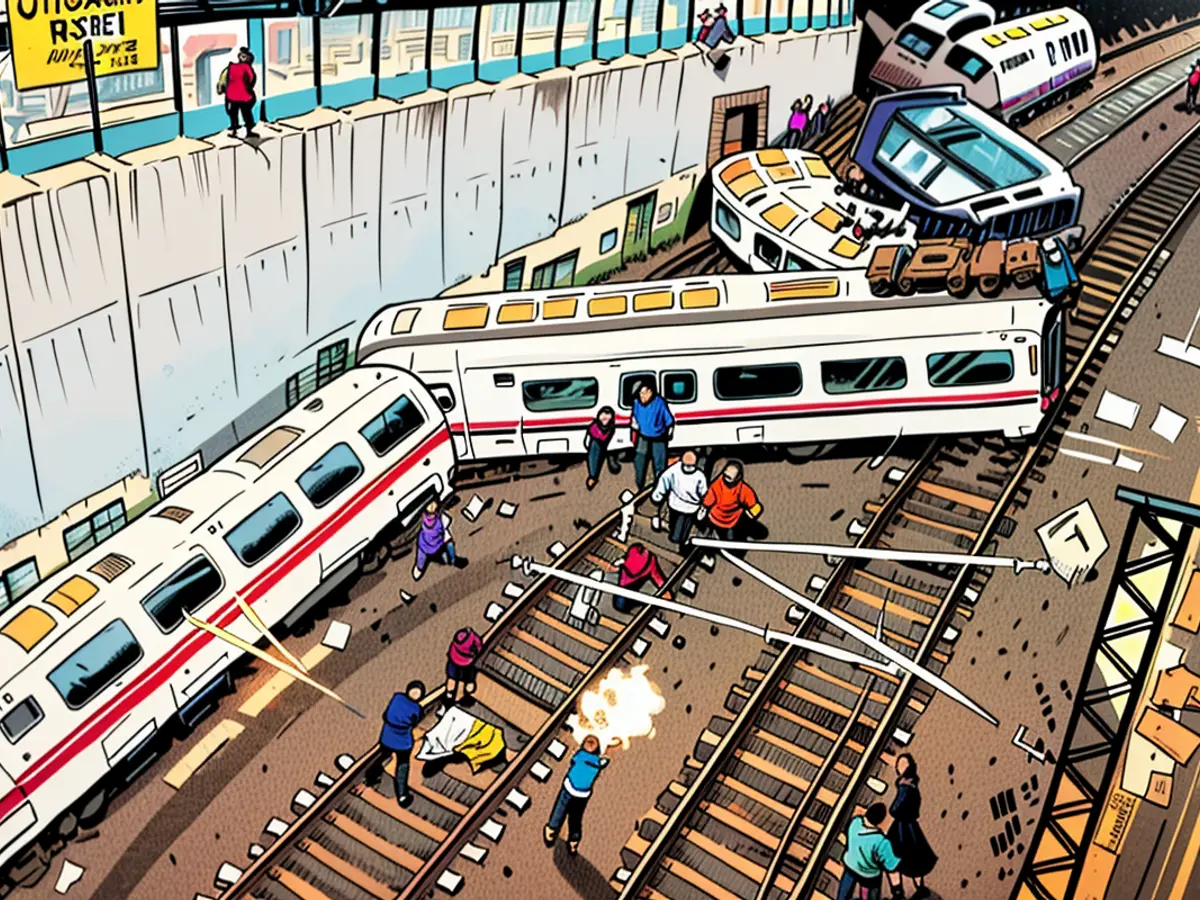Bahnungluck - Penalties eleven years after rail accident with 80 deaths in Spain
Exactly eleven years after a devastating train accident with 80 fatalities in the northwest of Spain, the two accused men have been sentenced to imprisonment of two and a half years each by the court. The train driver of the accident train and the then security chief of the Spanish rail company Adif were found guilty by the judge in over 79 counts of manslaughter due to "gross negligence", according to the Higher Regional Court of Galicia. The prosecution had demanded a prison sentence of four years for both defendants.
The trial in Santiago de Compostela had ended without a verdict one year ago. During the ten-month-long proceedings, nearly 700 witnesses and experts were questioned. The lawyers had denied the guilt of their clients in their closing statements and blamed each other defendant for the accident.
Victims and relatives had demanded "Justice" and above all a harsh sentence for Adif at several protest demonstrations. Adif should not be made a scapegoat, they argued.
The accident train was traveling at 192 kilometers per hour on July 24, 2013, in Angrois, just a few kilometers from Santiago de Compostela in Galicia, in a curve where only 80 kilometers per hour was permitted. The train derailed, resulting in both fatalities and 145 injuries. It was one of the most severe train accidents in European history.
- The two men, the locomotive driver and the former security chief of Adif, are from Galicia, the region where the infamous railway accident occurred.
- The train that was involved in the accident eleven years ago was en route to Saint James of Compostela, a popular pilgrimage destination in Spain.
- The hefty fine imposed on Adif following the railway accident was seen as insufficient by many affected individuals, sparking public outcry for justice.
- The locomotive driver and the security chief underwent a lengthy court process for their roles in the train accident, including numerous witness testimonies and expert analyses.
- Despite the severity of the accident on a railway in Angrois, some people argued against holding Adif solely responsible and instead suggested considering the contributory negligence of other men involved in the railway operations.
- The implications of this train accident on Spain's railway safety regulations and Adif's policies have been a subject of ongoing discussion in the realm of Spanish and European transportation policies.






